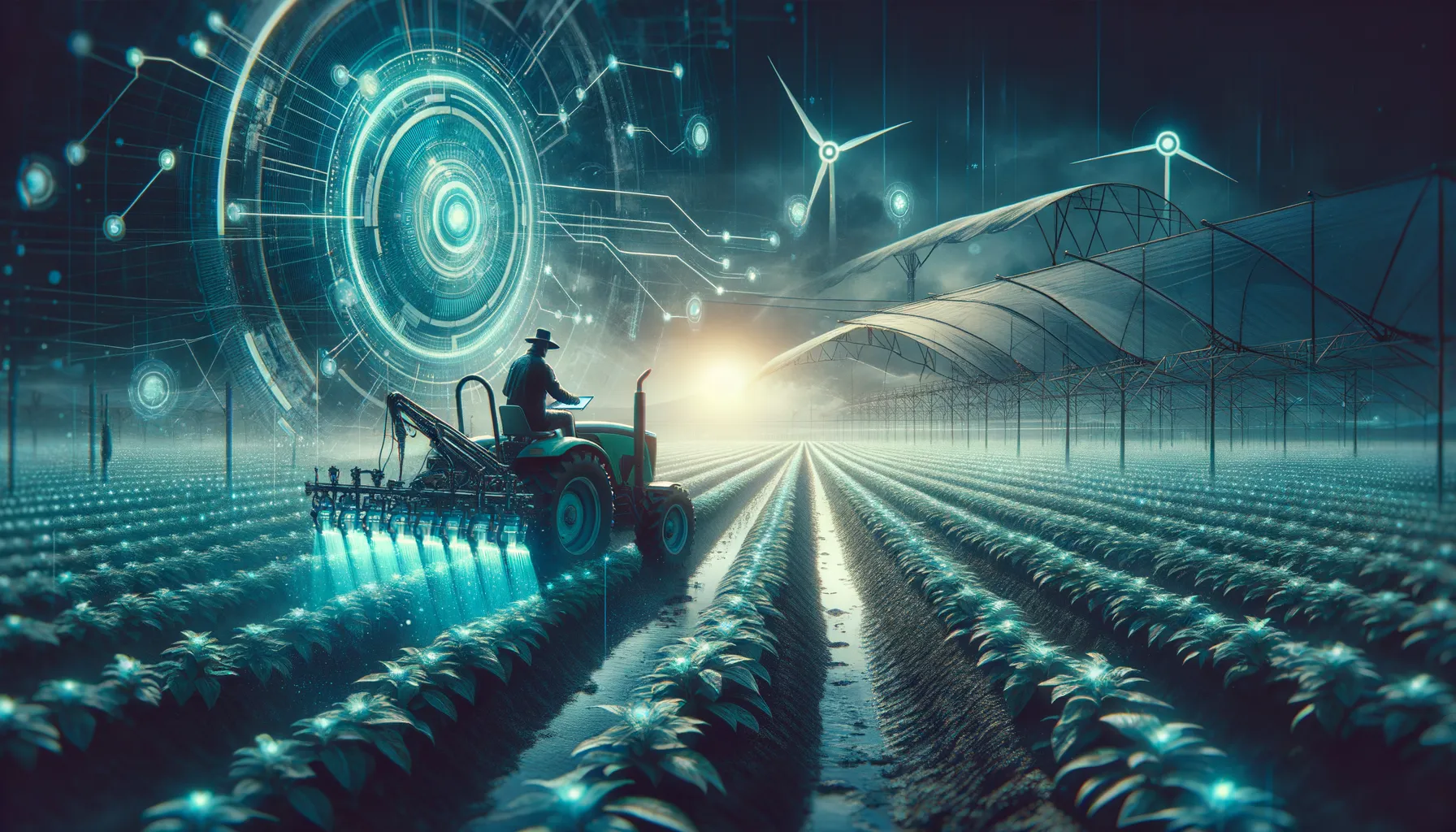Wednesday 15 January 2025, 09:51 AM
Transforming farming with smart agriculture technologies
Smart agriculture uses tech like sensors, drones, and IoT to make farming more efficient, sustainable, and productive, boosting yields while reducing environmental impact.
Introduction
Hey there! Have you ever wondered how technology is shaking things up in the most traditional of fields—farming? Well, grab a cup of coffee and let's dive into the fascinating world of smart agriculture technologies. Trust me, it's way cooler than it sounds!
What is smart agriculture?
So, first things first—what exactly is smart agriculture? In simple terms, it's the use of modern tech to improve farming practices. Think sensors, drones, GPS mapping, and data analytics all coming together to make farming more efficient, sustainable, and productive. It's like giving Mother Nature a high-tech makeover!
The benefits of smart farming technologies
You might be thinking, "Okay, gadgets on a farm—so what?" But the impact is huge. Smart farming technologies can help farmers:
- Boost productivity: By analyzing data, farmers can make informed decisions that increase crop yields.
- Save resources: Precision tools ensure water, fertilizers, and pesticides are used only where needed.
- Reduce environmental impact: Less waste means a smaller carbon footprint.
- Improve sustainability: Healthier soil and better resource management lead to long-term gains.
Pretty impressive, right?
Precision agriculture: farming with accuracy
Imagine being able to give each plant just the right amount of water and nutrients it needs—no more, no less. That's precision agriculture in a nutshell. Using GPS technology and soil sensors, farmers can create detailed maps of their fields. These maps highlight variations in soil quality, moisture levels, and more.
With this info, farmers can:
- Adjust planting strategies: Sow seeds at optimal depths and spacing.
- Fine-tune irrigation: Water only the areas that need it.
- Customize fertilization: Apply fertilizers in precise amounts where required.
It's like tailoring a suit, but for your crops!
IoT and connected devices on the farm
The Internet of Things (IoT) isn't just for your smart fridge or thermostat—it's making waves in agriculture too! Connected devices on the farm can monitor everything from soil moisture to livestock health.
Here's how IoT is changing the game:
- Real-time monitoring: Sensors collect data 24/7, so farmers are always in the loop.
- Automated systems: Irrigation and feeding systems can adjust themselves based on sensor data.
- Predictive maintenance: Equipment can alert farmers before a breakdown happens.
It's like having a personal assistant who never sleeps!
Drones and satellite imaging
Gone are the days when farmers had to walk the entire field to check on crops. Now, drones and satellites do the heavy lifting.
Benefits include:
- Aerial imaging: Spot issues like pest infestations or nutrient deficiencies from above.
- Mapping and surveying: Create accurate field maps quickly.
- Crop spraying: Drones can apply pesticides or fertilizers precisely where needed.
Who knew farming could be so futuristic?
Challenges and considerations
Of course, it's not all sunshine and roses. There are challenges to adopting smart agriculture technologies:
- Cost barriers: High-tech equipment can be expensive upfront.
- Technical know-how: There's a learning curve to using new technologies effectively.
- Data security: With connectivity comes the risk of cyber threats.
- Access in remote areas: Internet connectivity isn't always reliable in rural locations.
But hey, every revolution has its hurdles, right?
The future of farming
So, what's next on the horizon? Here are some exciting trends:
- Artificial intelligence: AI can analyze vast amounts of data to make predictive recommendations.
- Robotics: Autonomous machines for harvesting and planting are becoming more common.
- Biotechnology: Advancements in genetics could lead to more resilient crop varieties.
- Blockchain: Enhancing traceability in the food supply chain.
The possibilities are endless!
Conclusion
Smart agriculture technologies are transforming farming in ways we couldn't have imagined a few decades ago. By embracing these innovations, farmers can not only improve their productivity but also contribute to a more sustainable future.
So next time you enjoy a fresh salad or a hearty loaf of bread, take a moment to appreciate the incredible journey from farm to table—and the technology that's making it better every day!
Footnotes
Thanks for sticking around! If you're as fascinated by smart farming as I am, why not share this post with a friend? Spread the word about the tech that's feeding the world!

